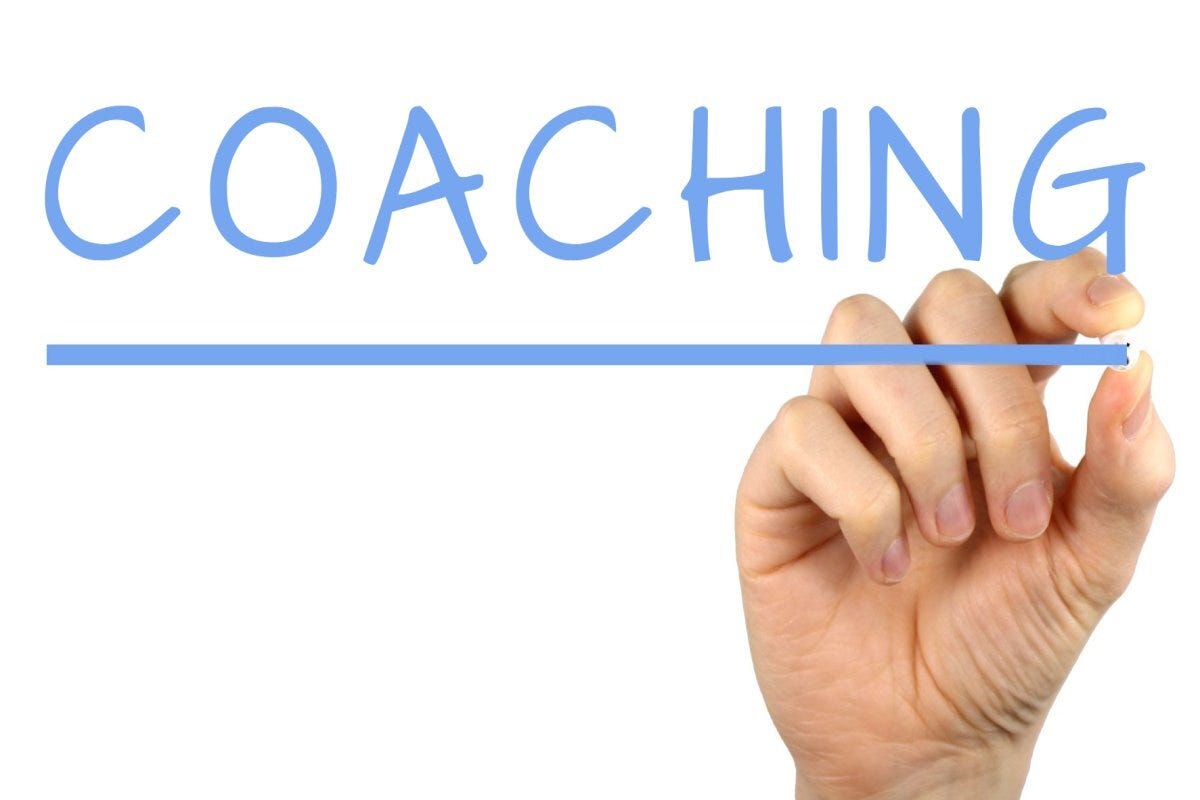Let’s be honest for a second. Conflict feels awful. As an influencer or marketer, you’ll find this popping up constantly while you build your brand. Disagreements with partners, friction in your team, or even that one comment online can throw off your entire day.
But what if you could change how you see conflict? What if it became a tool for growth instead of a source of stress? Mastering this aptitude is quite attainable. High-quality online platforms for personal advancement readily provide the resources for your betterment.
Reflect on that point. The ability to handle a tough conversation with grace is a professional superpower. You’ll learn that the journey to getting better at resolving disputes starts with you. Many of the best personal development sites focus on building the internal skills you need to stay calm and find a solution.
You see, you don’t just magically become good at handling these situations. Growing yourself truly requires effort. That effort builds the very foundation of who you become. Imagine the massive boost you’ll get in your business and personal life. You’ll achieve more and feel much better mentally.
Table of Contents:
- Understanding Conflict Before You Can Fix It
- The Entrepreneurial Mindset: Lessons in Conflict from the Greats
- How Personal Development Sites Help You Master Your Own Conflicts
- Putting It All Into Practice: A Marketer’s Guide
- Conclusion
Understanding Conflict Before You Can Fix It
Conflict is more than just an argument. It’s often a sign that people’s goals or expectations are not aligned. For influencers and marketers, this can look like a brand deal gone sideways or a simple miscommunication with a client about content making.
To handle these moments, you first need to understand yourself. Tell me, what about that partner’s message really set you off? When your thoughts face pushback, how do you usually react? Getting a handle on your own emotions and triggers is the first step toward improving your professional growth.
You’ll quickly see why growing your emotional awareness truly matters in situations like these. Understanding basic human behavior, starting with your own, helps you see your part in any disagreement. It is not about blaming yourself, but about gaining control over your responses and building emotional resilience.
The Entrepreneurial Mindset: Lessons in Conflict from the Greats
Building something from nothing means facing constant challenges and disagreements. While keen financial understanding certainly played a part, the most impactful business leaders set themselves apart by their exceptional ability to resolve intricate problems and foster effective human connections. Watching how others overcame obstacles or hit their goals often shows us clear blueprints. We can then adapt those exact steps to build up our own progress.
Just look at their stories. You’ll quickly see that handling your emotions, truly feeling what others feel, and smart planning are absolute must-haves if you want to achieve anything worthwhile. Just watch leaders from different fields and times; you’ll see this same pattern emerge. Each tough spot they hit on their way up only made them stronger.
The Rockefeller & Carnegie Method: Efficiency and Perspective
People like John D. Rockefeller and Andrew Carnegie built massive empires in tough industries. They focused hard. Work wrapped up fast. But underneath that was a powerful ability to control their emotions and think long term.
Significant corporate conflicts confronted them at every turn. Instead of squabbling over small stuff, they wisely managed their hours, keeping their attention fixed on the important goals. This strategic patience let them buy assets when others were panicking and build powerful monopolies.
You can absolutely pick up this ability by focusing on your own personal growth. Handling your feelings well is a skill you grow. It comes from regular effort and truly wanting to improve. It is about learning to respond based on your goals, not your immediate feelings.
Oprah Winfrey’s Superpower: Empathy and Connection
On the other hand, look at Oprah Winfrey. She started her vast company simply by putting herself in other people’s shoes. She knew what kept her audience up at night and what they truly dreamed about. No one else understood them quite like she did.
This skill is not just for talk show hosts. Marketers and influencers gain a huge advantage with empathy; it makes their communication skills incredibly strong. Knowing what your client or teammate needs makes all the difference. You can actually head off potential problems before they even become an issue, which really saves you a lot of time.
Oprah cracked the code to success: make people feel important. Her empire grew by showing the world the sheer power of helping folks feel truly heard and seen. Her success makes you think: winning doesn’t always mean being the toughest person in the room. Giving someone your full attention, just listening, often packs the biggest punch.
Steve Jobs: Passionate Vision and Tough Conversations
Steve Jobs was famous for his intense personality and a reality distortion field that bent people to his will. Arguments often kicked off whenever he was around. He didn’t just lead the way. His team at Apple came up with amazing breakthroughs and stood by him, no matter what.
What he went through gives us a fresh idea about leaving what’s safe. A well-defined objective empowers individuals to initiate crucial, sometimes uncomfortable, dialogues that safeguard their strategic direction from compromise or dilution. He did not shy away from telling people they were wrong.
Even though he went to extremes, there’s solid advice hidden within that experience. Learning how to give and receive direct, honest feedback without destroying a relationship is an advanced skill. Plenty of self-improvement courses center right around this particular skill.
James Clear: The Power of Atomic Habits
More recently, author James Clear has changed how people think about personal growth with his focus on tiny, consistent actions. Think beyond quick fixes. This work is about your very sense of self. He emphasizes that what we do consistently, good or bad, slowly builds our character.
In a conflict, your reactions are often just ingrained habits. Using Clear’s ideas, you can trade that knee-jerk defensiveness for truly hearing others. This requires a series of mindset shifts, where you decide to be a person who handles conflict with grace and then take small steps to prove it to yourself daily.
If you shrink from the thought of big changes, his method might be exactly what you need to ease into things. The focus on small, manageable steps makes starting a personal development journey feel achievable. His concepts, whether about building better habits or finding inner peace, fill his books and get discussed daily on his popular personal growth blog.
How Personal Development Sites Help You Master Your Own Conflicts
Okay, so we know what skills we need. We observed their performance directly; it was quite a display. So where do you actually go to learn them? The bright side? You’ll find tons of incredible websites online ready to help you become your best self.
You do not need to enroll in a university or hire an expensive coach right away. You can start building these skills today, right from your computer. You’ve got to land on the perfect place, the one that genuinely lets you sharpen the skills you’re building right now.
Want truly great ideas? These sites also show you proven ways to put them into practice. Psychology can feel complicated. But they break it down into simple, practical steps. You can easily add these to your everyday life. Ready to boost your studies? We’ll show you a few digital spaces that really help.
Platforms for Learning Core Concepts
Some of the most popular personal development sites are educational platforms where you can take specific online courses. Think about websites like Coursera or Skillshare. They have thousands of growth courses taught by experts on every topic imaginable.
Struggling with arguments? Find courses like “active listening” or “nonviolent communication.” They teach you proven approaches and the right words to handle difficult conversations with confidence. The structured format is perfect if you like a clear, step-by-step approach.
Plus, you can find quick summaries of all the big self-help books here. Get the gist fast. You’ll quickly get the main ideas without having to spend hours reading. You’ll find plenty of fresh ideas and exciting authors this way.
Here’s a quick comparison of a few popular platforms:
| Platform | Best For | Key Feature |
|---|---|---|
| Coursera | University-level personal growth courses. | Certifications from top institutions. |
| Skillshare | Creative and practical skills. | Project-based learning with a large community. |
| Mindvalley | Holistic personal growth. | Practical projects are included, along with live teaching. |
Meditation and Mindfulness Apps
Sometimes, the biggest challenge in a conflict is managing your own reactivity. That rush of anger or anxiety can make you say things you later regret. This is where mindfulness apps and a focus on your mental health come in.
Apps like Calm or Headspace teach you meditation and other mindfulness techniques. They are not about religion or strange chants. You’re essentially training your brain to take a breath. This simple act of pausing dramatically improves how well you read and handle emotions.
Imagine making clearer choices, even when you’re super stressed. That’s what a University of Wisconsin-Madison study suggests, showing that practicing mindfulness really helps people think straight under pressure. That small pause between feeling an emotion and acting on it is where you find control. Learning this can flip a tough talk on its head.
Blogs and YouTube Channels for Daily Inspiration
If you prefer to learn in smaller, more frequent doses, personal development blogs and YouTube channels are fantastic free resources. Plenty of influential thinkers regularly put out articles and videos. These pieces often pack helpful advice and clever tricks for everyday life. You can start reading a growth blog and immediately find something useful.
Reading a few development blogs consistently offers fresh ideas on productivity and clear communication. Using a quick search search on their sites can bring up years of content on a specific problem you’re facing. Always getting new thoughts and ideas around makes it easy to remember you’ve got to keep working on yourself.
A good YouTube channel can feel like having a personal mentor. Channels dedicated to helping people with their growth often break down complex ideas into engaging, visual formats. If long courses just aren’t in your schedule, this offers a nice change.
Communities and Coaching Platforms
Sometimes you need more than just information. For real improvement, you’ll want to hear what others think. You need someone to point out your blind spots in a way you can hear, especially when working with team members.
Websites that offer coaching or group support can be incredibly valuable for this. You’ll find top-notch coaches on these sites, all certified experts in helping people with their speaking skills or leading teams. Picture this: you and them, pulling apart actual arguments you’ve faced. Then, you’ll discover more effective ways to manage those tough situations.
This personalized help is often what you need to break old habits on your personal development journey. A coach can give you the push to try a new approach you would not have considered on your own. When choosing a platform, be sure to check their privacy policy and any rights reserved statements to protect your information.
Putting It All Into Practice: A Marketer’s Guide
Learning these new skills is one thing. Actually using them is another. You’ll weave these steps into your daily routine, so you perform them without even a thought.
You can start small. You do not need to wait for a massive fight to break out. Look for tiny opportunities every day to practice what you are learning from personal development sites.
It is all about building a new habit. With each tiny win, your belief in yourself will get stronger and stronger. Soon, you’ll feel much more prepared to handle whatever comes your way.
Step 1: Know Your Style
The first step is to figure out your natural conflict style. When arguments start, do you just walk away? Or do you charge in, ready for a fight? Most of us have a default setting based on our life experience.
Many personal development sites offer quizzes or assessments to help you identify your style. Once you know your tendency, you can start to work on it consciously. An avoider can practice speaking up, while a confronter can practice listening first.
Step 2: Practice Active Listening
Active listening is more than just being quiet while someone else talks. It is about genuinely trying to understand their perspective, a cornerstone of great communication skills. The next time you are in a meeting, try this.
Instead of thinking about what you are going to say next, focus completely on the other person. Listen to their words and watch their body language. Then, try to summarize what you heard by saying something like, “So what I hear you saying is…”
This single practice can prevent so many misunderstandings. Acknowledging how someone feels helps them feel seen. This makes them far more receptive to your perspective. It’s truly a powerhouse when you need to calm a situation.
Step 3: Reframe the Narrative
When you are in a conflict, it is easy to feel like you are the victim. It is easy to see the other person as the bad guy. This framing makes finding a solution almost impossible.
Try to reframe the situation as a problem you both need to solve together. Think like Sam Walton, who constantly looked for efficiencies at Walmart. He likely did not see a supplier disagreement as a personal fight, but as a logistical problem to be solved for a shared goal.
This shifts you from an adversarial stance to a collaborative one. Imagine the new ideas we can come up with. These ideas will actually serve everyone’s needs. You will find that most people are willing to work with you if you approach them this way.
Step 4: Set Clear Goals for Resolution
Before entering a difficult conversation, apply some goal setting principles. What’s the end game here? Is your goal to simply get your way, or is it about keeping the connection strong while finding a fair solution?
Defining your goal ahead of time gives you a north star. You’ll stick to the main point, stopping old feelings or past arguments from hijacking the conversation. Spending just a few moments getting ready beforehand is a powerful trick for managing your important connections.
Your goal might be as simple as, “I want us both to leave this conversation feeling respected.” Having that intention guides your words and actions. Instead of people squaring off, this guides them to actually talk things out and build something together.

Conclusion
Conflict is simply a part of life and business. Some things you simply can’t dodge. But you decide how you face them. It does not have to be a destructive force in your career as a marketer or influencer.
When you focus on growing as a person, you actually change challenges into forward movement. Think about truly understanding your own thoughts, feeling what someone else feels, and expressing yourself so others really listen. Learning and growing never really stops. But every single improvement you make helps you become a more skilled and tougher professional.
Imagine, everything you need is sitting right there, eager for you to start. The many incredible personal development sites available today give you a clear path to building these skills. When you take that first step, get ready. Your professional journey will shift, and your whole world might just follow.


Recent Comments